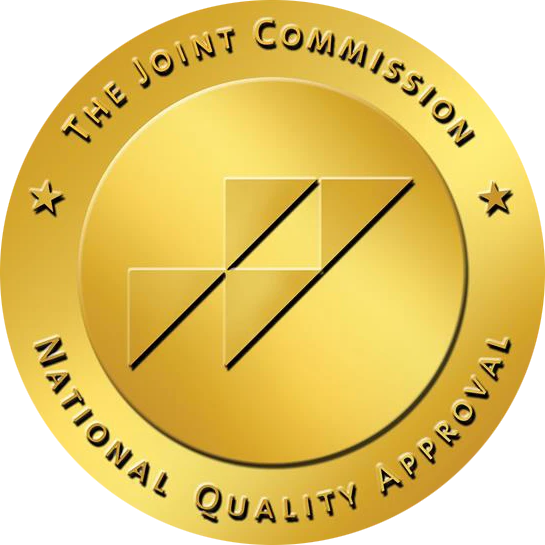Fentanyl is one of the most dangerous opioids in circulation today. Its extreme potency increases the risk of overdose, dependence, and life-threatening withdrawal. When fentanyl use stops suddenly, the body can react quickly and aggressively. This is why fentanyl detox should never be attempted alone.
A medically supervised fentanyl detox program provides continuous monitoring, withdrawal management, and immediate clinical support during the most unstable phase of early recovery. Detox is the first step. Stabilization and ongoing care must follow. At Retreat of Boston, fentanyl detox is designed to move people safely through withdrawal and directly into residential treatment once detox is complete.
What Is Fentanyl Detox?
Fentanyl detox is the medically supervised process of allowing fentanyl to leave the body while managing withdrawal symptoms safely. Because fentanyl is extremely potent and binds tightly to opioid receptors, the body can react intensely when use stops. Withdrawal timelines are often unpredictable, which makes medical monitoring essential during this phase.
Symptoms can begin quickly and may escalate without warning. Physical distress such as anxiety, agitation, nausea, body pain, sweating, and sleep disruption is common. During detox, medical staff focus on stabilizing vital signs, managing symptoms as they arise, and reducing the risk of complications while the body adjusts to the absence of fentanyl.
Detox alone does not treat opioid use disorder. It does not address cravings or relapse risk. What it does provide is short-term physical stability, creating the safety needed to continue directly into residential treatment, where ongoing care and recovery support begin.
Why Medical Detox Is Critical for Fentanyl
Fentanyl withdrawal treatment is not only physically uncomfortable, but it can also place serious strain on the body and create medical risks that escalate quickly. Severe dehydration, heart rate instability, respiratory stress, and intense psychological distress are common during unmanaged withdrawal. Because fentanyl is so potent, symptoms may worsen suddenly rather than follow a gradual pattern.
One of the most dangerous periods occurs after withdrawal begins. As tolerance drops, the risk of overdose increases sharply if fentanyl use resumes. Even a brief return to use after detox can overwhelm the body, making relapse especially dangerous. Without medical supervision, individuals may leave detox early in an attempt to relieve symptoms, which increases overdose risk.
A medical fentanyl detox program provides continuous monitoring and clinical support throughout withdrawal. Medical staff track vital signs, manage symptoms, and respond immediately to complications as they arise. Care plans are adjusted as the body stabilizes, helping reduce distress while prioritizing safety. Supervised detox creates the stability needed to move forward into residential treatment, protecting both immediate health and long-term recovery.

What to Expect During Fentanyl Detox
Fentanyl detox in Boston, MA, begins with a thorough medical assessment designed to identify risks early. Clinicians review fentanyl use patterns, recent substance exposure, physical health history, and any factors that could complicate withdrawal. This evaluation allows the care team to anticipate symptom severity and build a detox plan focused on safety from the start.
As detox progresses, individuals are monitored around the clock. Medical staff track changes in withdrawal symptoms, hydration, blood pressure, heart rate, and breathing. Support is provided as symptoms emerge rather than after they escalate. When appropriate, medications may be used to reduce physical distress and help stabilize the body while fentanyl leaves the system.
The duration of fentanyl detox varies based on the individual and how the body responds. Some people stabilize within a few days. Others require extended monitoring due to fentanyl’s potency and lingering effects. Detox continues until the individual is medically stable and ready to move forward into residential treatment, where ongoing care and recovery support begin without interruption.
What Happens After Fentanyl Detox?
Completing fentanyl detox means the body has reached a safer level of physical stability, but recovery is still fragile. Cravings, emotional distress, and relapse risk often increase once withdrawal symptoms ease. This period requires structure and clinical support to prevent relapse.
Residential treatment is the expected next phase of care after fentanyl detox. It provides a controlled, substance-free environment with daily clinical oversight and therapeutic support. Residential care focuses on addressing the patterns and stressors that drive fentanyl use while helping individuals build stability during early recovery. Transitioning directly into residential treatment reduces relapse risk and supports continuity of care.
At Retreat of Boston, fentanyl detox and residential treatment are intentionally connected. Care continues uninterrupted, so individuals are not left vulnerable during the critical period immediately after withdrawal.
Take the Next Steps with Fentanyl Detox Today
If you are searching for fentanyl detox in Massachusetts, timing matters. Withdrawal can escalate quickly, and delaying care increases medical risk and the likelihood of relapse. Reaching out earlier allows a clearer understanding of what support may be needed right now.
Our admissions team is here to help you talk through what is happening and understand the next steps. These conversations are confidential and focused on safety. They help clarify whether medically supervised fentanyl detox is appropriate and explain how care typically continues into residential treatment after detox. For many people, this initial conversation provides stability and direction during a difficult moment.




